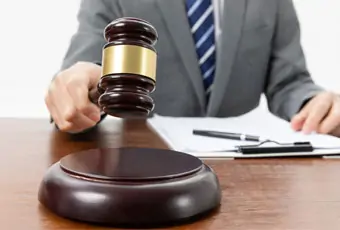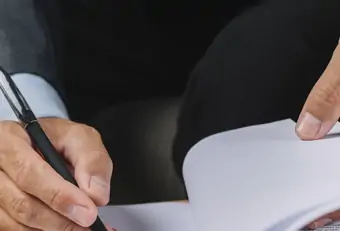Charlotte Personal Injury Lawyer
Charlotte Personal Injury Attorney
Getting injured can be a terrifying situation. Once the initial shock and overwhelming feelings fade, you likely need to determine what you are going to do about things like paying for medical bills and missing time at work to recover. Fortunately, if you were injured because of someone else, the law does allow you to hold those parties accountable and receive restitution for what you suffered. A qualified Charlotte personal injury lawyer can help you with every step.
Whether it is from a car accident, a slip-and-fall incident, or another situation where someone else was negligent, filing a personal injury claim could help you get restitution for what you’ve had to endure. At the Tatum Law Firm, our team of personal injury lawyers in Charlotte helps those who have suffered a personal injury seek damages to cover their costs.

Establishing Fault for a Personal Injury Claim in Charlotte
The central component of a personal injury claim is the matter of fault. Restitution will only be paid to the plaintiff if it can be shown that the other party was at fault for what occurred. The burden of proof is then on the plaintiff to make the case that the defendant was at fault.
Generally, proving fault, or liability, in a personal injury case comes down to proving three things:
- Duty To Care: The defendant in a personal injury case must be shown to have had what is called a “duty to care.” This is the idea that people owe those around them a certain level of attention and care regarding their safety.
The plaintiff’s side must demonstrate that in the circumstances under which the injury occurred, it was fair to expect a reasonable attempt on the part of the defendant to reduce the risk that their actions may cause harm to those around them.
- Breach of Duty: The defendant must be shown to have committed what is referred to as a “breach of duty.” This means the plaintiff’s team must show that the defendant’s actions or inactions did not live up to the level of duty they had in that situation.
Generally, this involves showing that they failed to act as a reasonably careful person would have in the same circumstances. They must be able to prove both what the defendant should have done, as well as what the defendant actually did.
- Breach of Duty Caused the Injury: The last thing necessary to establish fault is to show that the breach of duty on the part of the defendant led to the injuries that the plaintiff suffered.
In some situations, a breach may not have been the direct cause of an injury. For instance, a drunk driver is breaching their duty by operating a vehicle while inebriated. However, if they are stopped at a light and get slammed into by another car from the rear, then their breach may not be seen as the cause of the accident.
Therefore, the plaintiff must be able to show that the cause led to whatever incident caused the injuries. There can often be some challenges around whether the injuries were caused by the accident, so the causal line must be shown to go all the way through from breach to injury.
What Damages Mean in Personal Injury Cases
In a personal liability case, the compensation you receive is known as damages. Much like proof of fault is necessary to prove in a personal injury case, it is also essential for your personal injury lawyer to prove that the damages you are seeking are directly tied to the injury you suffered in Charlotte. The proof of fault extends from the breach of duty through the accident and injuries all the way to the costs of those injuries.
It’s crucial to keep good records of all bills and everything else associated with managing your injuries, as those will often be used to demonstrate the connection.
The damages that are awarded in personal injury cases generally fall into one of two categories:
- Economic Damages: Handling an injury and the fallout often creates an array of bills that must be handled. There are medical bills, including things like surgeries, diagnostic exams, rehabilitation, medication, and other costs. There is missed work and wages that need to be accounted for as well. These costs include what has occurred at the time of the accident but also, if the injury warrants it, future medical costs or lost future earnings as well.
Additionally, depending on the type of accident, there could be property damage involved for which there needs to be some kind of compensation. All of these things, and any other costs that are easily calculable because they involve a bill of some sort, are included in the category of economic damages.
- Non-Cconomic Damages: There are a lot of costs that come from an accident that don’t have a bill or receipt associated with them. These are things like emotional distress, loss of enjoyment in life, and pain and suffering. Despite not being the kind of things that are solved by money, the law still dictates that they need to be compensated for, and that is handled under non-economic damages.
Economic and non-economic damages are both forms of compensatory damages. In most cases, these are the only damages that will be awarded. However, there are some situations where punitive damages may also be awarded.
Punitive damages are meant to act as a kind of punishment and deterrent for those who cause injury to another party through conduct that is considered to be particularly egregious. This typically means there is something about the defendant’s conduct that is intentional, such as being malicious or fraudulent.
There are a number of factors to be considered when deciding whether to award punitive damages, including:
- The defendant’s ability to pay
- The reprehensible nature of the motive
- The likelihood of harm
- Concealment of facts or consequences by the defendant
- If the defendant profited from their actions
- If the defendant was aware of the consequences of their actions
- Damages suffered by the plaintiff
- Similar past conduct
- How long the conduct lasted
What Is Pure Contributory Negligence in Personal Injury Cases?
One of the things that makes personal injury cases in North Carolina more challenging than other states is its system of pure contributory negligence. What this means is that the plaintiff could lose all possibility of receiving damages.
In most other states, if the plaintiff is found to be partially at fault for an accident, the total amount of damages that they can collect is reduced proportionately to the share of fault that they are found to have.
In North Carolina, though, if there is even the slightest thing that the plaintiff should have done differently to prevent an injury, then they risk not being able to recover anything. For instance, if a plaintiff ignored a store’s warnings about a wet floor, they might not be able to recover damages if they slipped and fell. Another example might be an instance where both drivers were found to be partially at fault. That situation could result in neither driver being able to recover damages.
This isn’t cause to give up hope, though, as there are ways to defend against contributory negligence. The burden of proof is on the defendant to prove that the plaintiff was also at fault. It’s possible to challenge the components of negligence that are argued against you.
There are also some legal principles, such as the last clear chance doctrine or gross negligence, that could apply to your case and offer some protection. It’s important, however, to work with an experienced legal team, like the Tatum Law Firm, to craft a defense based on the particulars of your case.
What Is the Statute of Limitations in Personal Injury Cases?
The concept of a statute of limitations is that only so much time can pass after an incident before an injured party is no longer allowed to hold the other party responsible for the accident. For most personal injury cases, the statute of limitations is three years, meaning that a claim must be filed within three years after the injury occurred.
There can be some exceptions to this, though, such as if the injury is reasonably discovered at a later time. There may also be some variance depending upon the type of personal injury claim — for example, medical malpractice — and a lawyer can help you understand the specifics of your case.
What To Do in the Aftermath of the Accident
There are some things that can be done in the immediate aftermath of an accident that can benefit your potential claim. Keep in mind that these moments following the incident are a time to be careful with what you say and to begin to gather evidence that can help your case.
Here is what you can do following an injury-causing accident:
- Seek Medical Attention: It’s important to get any necessary emergency attention immediately after the accident, especially if it is a serious situation. Even if you don’t think anything is wrong, you must let paramedics check you out in case you aren’t recognizing a problem because you are in shock.
It’s also a good idea to get a full medical examination as soon as you can. Paramedics are trained to look for traumatic injuries, but there may be something that could be less immediately obvious. Particularly as the shock wears off, you may notice something else.
Note that you do want to get looked at soon after the accident. Otherwise, the defendant’s lawyers may try to argue that the injuries weren’t as serious or came from some other incident.
- Speak Carefully: You want to be cautious about how you discuss the incident with others. This is especially true of the other party involved and any insurance agents you speak with. Anything you say that sounds at all like taking some level of blame for the situation could later be used against you.
This is especially important in a state like North Carolina, where any level of fault on your part could result in completely losing your right to damages.
- Document Everything: It’s hard to overstate the importance that documentation can play in a personal injury case. Firstly, if at all possible, you or someone you’re with should document the scene of the accident, the injuries, and anything else relevant to why the accident occurred in the first place.
The importance of documentation continues throughout the case, though, as you will need to keep track of medical diagnoses, doctor’s expenses, and any other costs you incur because of the injury. This information can be used to put together your claim for damages. The more you document the situation, the better.
We can always sort through the details you have and decide what’s most valuable if you have too much. That’s preferable to having too little evidence in support of your claim.
- Contact the Tatum Law Firm: In most of these situations, the sooner you get in touch with a Charlotte personal injury lawyer, the better. At the Tatum Law Firm, we can help guide you through what you should be doing to protect your claim.
We can also help communicate with the insurance companies to help prevent you from saying something potentially incriminating. When you contact us and discuss your case, we can also begin our investigation of the situation. The more time we have to investigate, work with the insurance companies, and protect your claims, the better the outcome will likely be for you.
Personal Injury Cases We Handle in Charlotte, NC
At the Tatum Law Firm, we handle a wide variety of legal matters. The personal injury cases that we have successfully helped resolve include:
- Car accidents
- Motorcycle crashes
- Trucking incidents
- Medical malpractice and negligence
- Product liability (defective products)
- Workplace accidents/workers’ compensation
- Construction injuries
- Slip and falls (premises liability)
- Elder/nursing home abuse and neglect
- Wrongful death
How Long Will My Case Take to Settle?
Every case is different, with numerous factors that may speed up or extend the proceedings. One influential factor is the accused party’s insurance company’s willingness to negotiate as well as your attorney’s negotiating skills. If the insurer denies liability, is slow to respond, refuses to offer a fair settlement, or is otherwise uncompromising, it’ll likely take longer to reach a resolution, and the case may even go to trial.
If your injuries are relatively minor and/or if there is clear liability on the defendant’s part, your injury claim is more likely to be resolved after a few months. More complex cases may take up to a year or longer to settle.
How a Charlotte Personal Injury Lawyer Can Help?
Working with a personal injury lawyer in Charlotte can be critical for having a strong, thorough case. It’s especially important to have a skilled attorney, given that North Carolina is a pure contributory negligence state.
You need a team ready to defend against any claim that you were even partially at fault for. Experienced lawyers, like those at the Tatum Law Firm, have a solid understanding of what can be done to defend against those claims. Finding the right personal injury lawyer is crucial in ensuring your rights are protected and you receive the compensation you deserve.
The first thing we do when we work with a client is a thorough investigation of the case. This is critical for both making the case for negligence on the part of the other party and also defending against claims of negligence on your part.
Our investigation could entail any number of things depending upon the particulars of your accident. Generally, we review any photographs or video of the accident and the scene. We interview any eyewitnesses or expert witnesses as necessary and gather documents or other relevant facts.
We will look for every bit of evidence that can be used to argue your case and protect against contributory negligence arguments. Our investigation is specific to your case; we go where we can to ensure the most optimal outcome for your situation.
We also work with the insurance companies on your behalf. In many cases, it can be beneficial to avoid taking a claim all the way to trial, as that can be a lengthy and expensive process. A negotiation with the insurance companies could provide the most favorable outcome. You want to allow our lawyers to negotiate on your behalf, though.
Insurance representatives will be looking for anything you say that could be argued as an admission of fault, especially in a pure contributory negligence state like North Carolina. By letting us deal with them, you have some protection against that risk.
If it’s necessary to take your claim to court, it is our job as your personal injury lawyer to argue your case. We’ll make the case to establish components of fault on the part of the defendant. We are also prepared for the arguments that the defendant may make regarding your potential share of fault in the incident.
Lastly, we are ready to argue for the damages that you wish to recover from the case. We understand the different legal elements that could be critical to your claim, and we use our experience in court to craft a case that highlights the factors the court is looking to see demonstrated.
FAQs
Q: What Is the Time Frame to Settle a Personal Injury Case in NC?
A: The timeframe to settle a personal injury case in North Carolina will likely be several months. If a reasonable settlement cannot be reached during negotiations between your injury attorney and the at-fault party’s insurer, the case will typically go to trial.
When the proceedings of a personal injury claim move to the courtroom, it is very likely that the process will be extended, potentially lasting a year or more. If there is a dispute or uncertainty regarding who’s at fault, this will lengthen the case even more.
Q: What Is the Statute of Limitations for Personal Injury in NC?
A: In North Carolina, the statute of limitations for personal injury claims is three years from the date of the injurious accident. If there is a delayed discovery of an injury, the three years will begin from the date of the discovery, when the injury becomes apparent, or symptoms are displayed. It’s important to file within the statute of limitations since an injury claim filed after the allotted time limit is easily, and often, dismissible in court.
Q: What Is Personal Injury in North Carolina?
A: Personal injury is a type of claim that individuals can file when they believe that their injury was a result of another person’s wrongdoing, particularly their careless behavior or actions. If the accused party is proven to have been negligent and thus liable for the damages, the victim will be awarded a settlement payment. This compensation is to pay for the injured party’s medical bills, pain and suffering, loss of income, and other damages as a result of the accident.
Q: What Is the Law of Personal Injuries?
A: Personal injury law applies to instances where individuals sustain physical injury or die as a result of their injuries following an accident or circumstances arising from another party’s negligence. Personal injury law allows these individuals, or their families, in the event of a wrongful death, to take legal action to pursue compensation. This recompense is meant to “right” the wrong done to them physically, to their property, and for other losses caused by the accident.
We Can Help Fight for What You’re Owed
When you have been injured because of someone else’s negligence, you deserve restitution that makes you whole, or at least as whole as possible. You should be able to get compensation for your medical bills and for the psychological and emotional damage that you’ve suffered.
However, these payouts are made by insurance companies. They don’t want to see their bottom line take the hit, so they often fight against paying what you’re owed. With North Carolina’s pure contributory negligence policy, they also have a significant advantage.
To make sure you are giving yourself a strong chance at getting what you’re owed, you want to work with a law firm that understands how to handle the unique challenges of arguing a claim in North Carolina.
At the Tatum Law Firm, we have the necessary skills to work with difficult claims. We thoroughly investigate our clients’ cases and develop a comprehensive argument in their favor. We know the kinds of arguments that the opposition is likely to make, and we craft a solid plan for how we can argue against them. If you think you have a personal injury claim, contact us to discuss your case.






